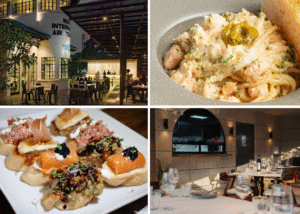In the dynamic and fiercely competitive food and beverage (F&B) industry, enhancing customer engagement is not just a goal—it’s a necessity for survival and growth. With the rapid evolution of consumer preferences, technological advancements, and the ongoing impacts of global events like the COVID-19 pandemic, businesses in the F&B sector must continually innovate and adapt their engagement strategies. This article revises and expands upon the insights from Vinay Chandrashekar, a Brewpreneur and Founder of Long Boat Brewing Co., and integrates additional perspectives from Bit2Win and GloriaFood to present a comprehensive overview of effective customer engagement strategies in the F&B industry.
Crafting a Unique Selling Proposition (USP)
At the heart of any successful F&B business lies a compelling USP—a unique feature or aspect that sets your establishment apart from the competition. Whether it’s a distinctive ambiance, a pioneering concept, or a signature dish, your USP should be the cornerstone of your marketing and engagement efforts, resonating with your target audience and encouraging loyalty.
Leveraging Digital Presence and Social Media
In today’s digital age, having a robust online presence is crucial for engaging with customers. This includes maintaining an engaging website, utilizing social media platforms for storytelling, and interacting with customers through contests and user-generated content. Digital platforms offer unparalleled opportunities for showcasing your offerings creatively and fostering a sense of community around your brand.
Harnessing Data Analytics and Customer Feedback
Data analytics plays a pivotal role in understanding customer behavior and preferences, enabling businesses to tailor their offerings and enhance customer satisfaction. Collecting and analyzing customer feedback through various channels provides invaluable insights into areas for improvement and helps in refining services to meet customer expectations more closely.
Prioritizing Employee Incentives and Training
Exceptional customer service is the backbone of any successful F&B operation. Investing in employee incentives and training programs not only boosts morale but also ensures that every interaction with customers is positive and memorable. Staff who are well-trained and motivated are more likely to provide excellent service, contributing to higher customer satisfaction and loyalty.
Emphasizing Corporate Social Responsibility (CSR)
Engaging with community causes and participating in CSR activities demonstrates a commitment to societal values, strengthening brand loyalty and visibility within the community. Sponsorships, donations, and involvement in local events not only contribute to the greater good but also enhance your brand’s reputation and connect with customers on a deeper level.
Managing Online Reviews and Reputation
In the digital era, online reviews and reputation management are more critical than ever. Actively monitoring and responding to online feedback, whether positive or negative, shows customers that your business values their opinions and is committed to continuous improvement. This proactive approach to reputation management fosters trust and builds a solid foundation for customer loyalty.
Innovating and Experimenting
The F&B industry thrives on innovation. Constantly experimenting with new dishes, flavors, and concepts keeps your business relevant and competitive. Limited-time offers, seasonal menus, and thematic events can cater to changing customer preferences and keep the dining experience fresh and exciting.
Utilizing Traditional and Digital Marketing Tactics
While digital marketing is essential, traditional print media and offline marketing tactics remain effective for reaching audiences and promoting new launches and special offers. A balanced approach that combines digital and traditional marketing strategies can maximize reach and engagement.
The F&B industry is characterized by constant change and competition. By adopting a multifaceted approach to customer engagement—ranging from leveraging digital tools and personalizing experiences to prioritizing employee development and CSR initiatives—F&B businesses can navigate the challenges of the modern marketplace and cultivate lasting relationships with their customers. As the industry evolves, so too must the strategies for engaging customers, ensuring that businesses remain relevant, competitive, and successful in the face of ever-changing consumer demands and preferences.




